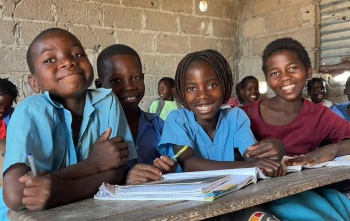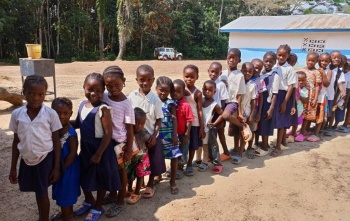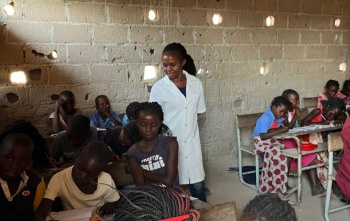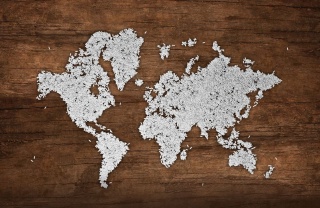Mary’s Meals is serving more than 900 children in Lebanon
Lebanon is one of the poorest countries in the world, ranked 102 out of 193 countries and territories in the Human Development Index (HDI).
Plagued by conflict and political instability, the country is enduring a historic economic crisis which is pushing its people deeper into poverty and hunger. Lebanon continues to experience a protracted refugee crisis, with some of the highest numbers of refugees per capita in the world. [Lebanon - European Commission]
Through our partner Dorcas, we provide daily meals to more than 900 children in a few places of education – one public primary school and three informal education centres (one within a refugee settlement). Our meals are served to Syrian refugees and Lebanese children from areas around Beirut that have been severely affected by the recent crises.
News and Stories from Lebanon

Partnership is at the very centre of Mary’s Meals’ success

The gift of hope – transform a child’s future this Christmas

Mary’s Meals volunteers are helping to transform children’s lives

Encouraging children into the classroom – one meal at a time
For school directors Jose, Samuel, and Naicy, Mary’s Meals offers more than nourishment — it brings hope for a brighter future.
Explore our work in other countries
